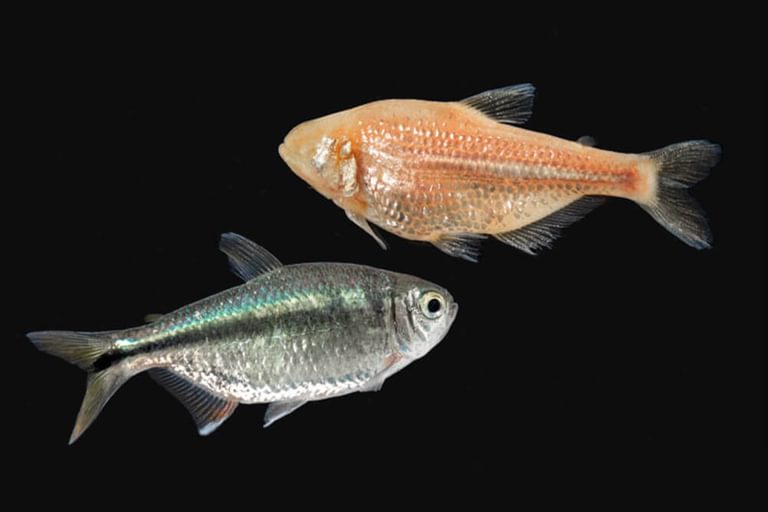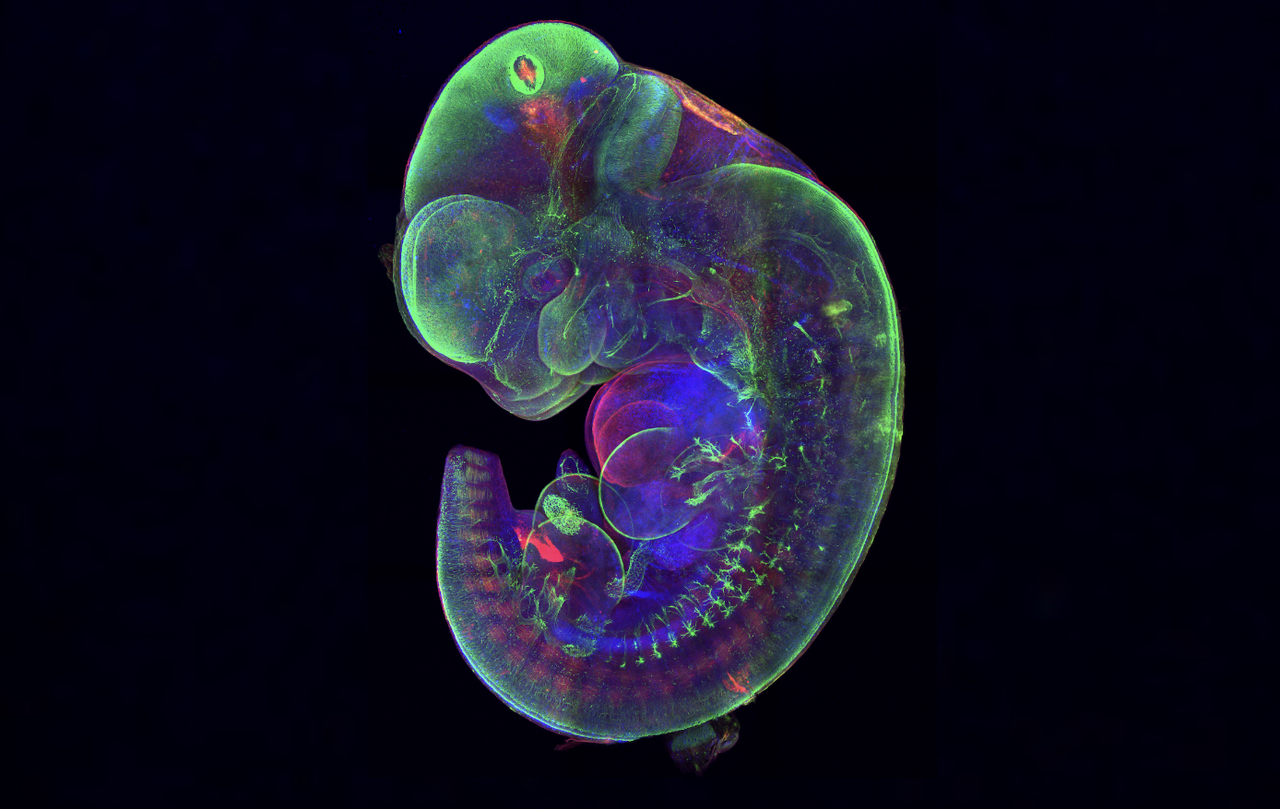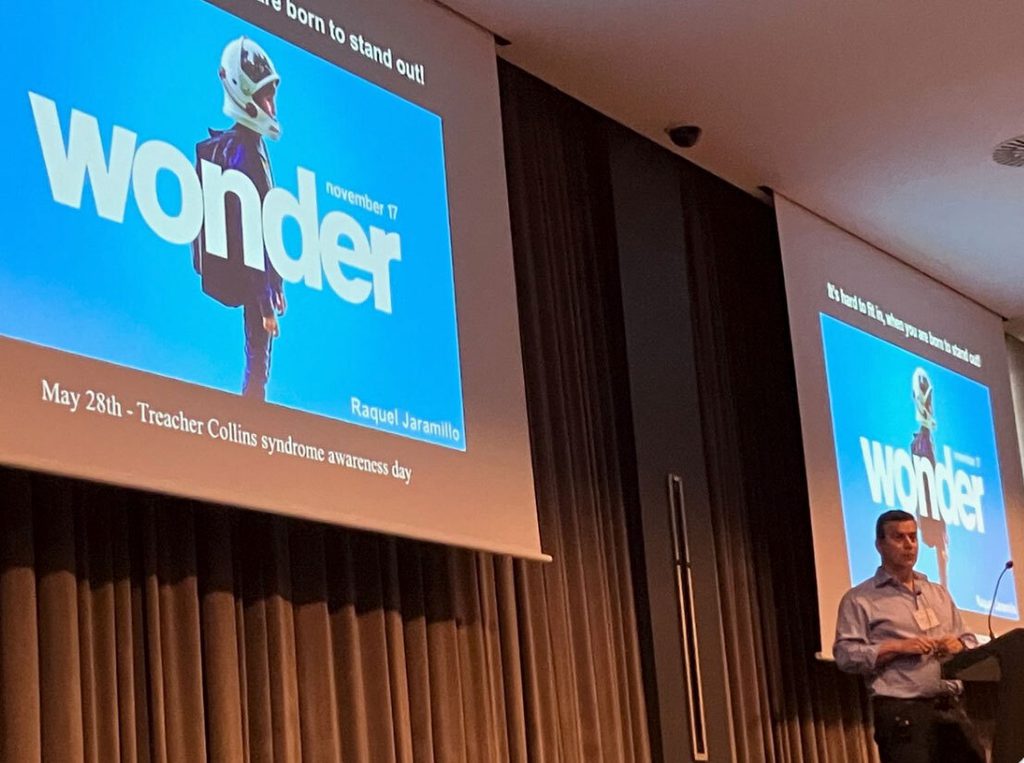News

14 May 2024
Five questions about diabetes
Investigating how metabolism works in humans and other species may yield answers for controlling and one day even curing diabetes.
Read Article
News
The importance of foundational research for understanding and potentially addressing congenital conditions

Midgestation mouse embryo in which the central nervous system (brain and spinal cord) and the peripheral nerves are labeled in green, whereas the forming cardiac and skeletal muscles are labeled in red. The peripheral nervous system is formed from neural crest cells and perturbation of neural crest cell development cause a wide range of neuropathies.
Although everyone is unique, being born truly different can come with distinct challenges. According to the World Health Organization (WHO), around eight million children are born with a congenital condition each year. These conditions are collections of traits that appear in the body prior to birth.
Multiple Investigator labs at the Stowers Institute are engaged in foundational biological research with the hope of one day guiding the development of more effective treatments and potentially preventions for such conditions.

Investigator Paul Trainor, Ph.D., investigates craniofacial and other congenital conditions.
The Trainor Lab
One of these conditions, Treacher Collins syndrome, is depicted in the contemporary novel and film “Wonder.” The powerful story follows Auggie, a 10-year-old boy born with this craniofacial condition, as he navigates bullying, forging friendships, and ultimately finding acceptance. Auggie’s appearance is unusual due to structural differences in his face.

Investigator Paul Trainor, Ph.D., presenting his lab's research on Treacher Collins syndrome. Photo credit: @KarenJLi via/X
Stowers Investigator, Paul Trainor, Ph.D., often references the film when he meets with families impacted by Treacher Collins and gives talks about his lab’s research – which aims to uncover new knowledge related to congenital conditions.
“Together we can make a difference,” said Trainor. “Translation begins with empathy, understanding, and communicating the results of foundational research directly to affected individuals and their families.”
Most people living with Treacher Collins have a genetic mutation in a gene necessary for the assembly of ribosomes, the molecular machines inside cells that manufacture proteins.
When ribosomes are not assembled correctly or they malfunction, their ability to produce proteins needed for proper development is compromised. Trainor not only investigates Treacher Collins syndrome, but many other conditions caused by a class of conditions impacting ribosomes called ribosomopathies.

Assistant Investigator Kamena Kostova, Ph.D., studies ribosome variability and ribosomopathies.
“A major problem with ribosomopathies, many of which affect the head and face, is when cell death occurs,” said Trainor. “Ribosome production is particularly critical for key developmental cells called neural crest cells. My lab’s research on mice has identified that if neural crest cell death can be reduced or stopped, the head and face develop normally, which may yield preventative prenatal supplements like folic acid that can minimize the severity of these conditions.”
The Kostova Lab
Assistant Investigator Kamena Kostova, Ph.D., also investigates ribosomes, which are found in every cell and critical for life. As their sole function—making proteins—is so fundamental, Kostova is exploring why ribosome structure and function display remarkable variability. Kostova's lab studies both normal properties of ribosomes as well as what happens when they malfunction. Like Trainor, she also studies ribosomopathies.

Investigator Tatjana Sauka-Spengler, Ph.D., researches neural crest cells.
“We study a group of disorders called ribosomopathies that can cause a range of congenital conditions including craniofacial abnormalities,” said Kostova. “All ribosomopathies share a common problem: The body produces defective ribosomes. Ultimately, our lab’s goal is to improve patient diagnosis and develop new treatments.”
The Sauka-Spengler Lab
Unusual facial features are often caused by neural crest cell death, the embryonic brain and spinal cord stem-like cells that travel from their origin to become parts of the head and face, heart, and nervous system. Complex circuits of genes, molecular cues, and proteins that help turn genes on—called gene regulatory networks—regulate the division, migration, and fate of neural crest cells.
These networks are the primary research focus of the lab of Investigator Tatjana Sauka-Spengler, Ph.D. Molecular elements controlling neural crest cells, given their migratory properties and potential to become many cell types, are critical to understand development, congenital conditions, and diseases later in life like cancer.

Investigator Jennifer Gerton, Ph.D., studies chromosome sequence, structure, and function.
“It is paramount not just to study specific genes, but the networks and elements that drive them,” said Sauka-Spengler. “Proteins that remodel DNA to make genes either more or less accessible, thus impacting gene activity, are present in every cell and could have far more global affects during development and direct connections to congenital conditions.”
The Gerton Lab
Congenital conditions can also be connected with impaired chromosome function. Stowers scientists study mutations in proteins that maintain chromosomes, and many protein clusters or complexes are involved in supporting the integrity of chromosome structure and function and in their proper duplication and separation into daughter cells during cell division.
A crucial protein complex that plays a role in chromosome cohesion, descriptively named cohesin is one area of research of Investigator Jennifer Gerton, Ph.D. and her lab. Mutations in the genes that encode cohesin proteins are linked to congenital conditions like Cornelia de Lange syndrome and Roberts syndrome—rare conditions resulting in craniofacial differences along with physical and cognitive difficulties.

Investigator Scott Hawley, Ph.D., studies chromosomes segregation during meiosis.
The Hawley Lab
The lab of Investigator Scott Hawley, Ph.D., studies the specialized cell division process that forms sperm and egg cells called meiosis. More specifically, they study the protein complex holding chromosomes together during meiosis called the synaptonemal complex. Mutations in proteins that form this complex have direct implications for aneuploidy, the incorrect number of chromosomes after cell division, with Down’s syndrome being just one example.
Although 50% of congenital conditions are not linked to a specific cause according to the WHO, fundamental research is improving our understanding of the roles genetic alterations and environmental factors play in these conditions, offering hope for revealing new inroads for treatment and prevention. Through foundational research underlying the many facets of the cells, proteins, and the elements that guide them, Stowers scientists are primed to make important discoveries surrounding the principles of normal development and the disruptions that lead to congenital conditions.
This story is part of the Institute's #StowersImpact series. To learn more about the impact of our research on congenital conditions, click here.
News

14 May 2024
Investigating how metabolism works in humans and other species may yield answers for controlling and one day even curing diabetes.
Read Article
News

23 May 2023
Stowers scientists are unraveling the mechanisms governing cancer stem cells
Read Article
News

24 April 2023
Foundational research at the Stowers Institute is leading to a greater understanding of many factors governing infertility with the goal of improving health, healthy outcomes, and providing hope for people facing this challenge.
Read Article
